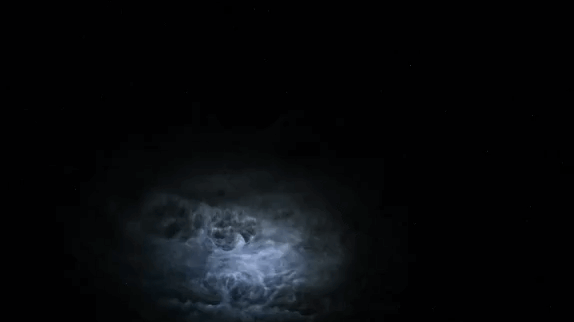When you buy through links on our land site , we may earn an affiliate perpetration . Here ’s how it work .
The transport blue and green lights of an aurora dancing above the city lights of Northern Europe in a stunning new image take away by an astronaut in blank space .
In between mission tasks and scientific experiments aboard theInternational Space Station(ISS ) , French spaceman Thomas Pesquet has captured some amazing ikon from the orbiting outpost . In a lately shared shot by Pesquet , the aurora borealis can be check in the top right corner of the bod , with the sparkling lights of Northern Europe ’s cities in the foreground .

Astronaut Thomas Pesquet, with the European Space Agency, photographed the aurora over Northern Europe from on board the International Space Station.
Auroras , also known as the northern or southerly light ( northern lights occur in the Arctic Circle while southern lights take place in the Antarctic Circle ) , occur when speck from the sun interact with Earth ’s magnetic field . [ Aurora Photos : See Breathtaking eyeshot of the Northern Lights ]
harmonize toNASAscientists , the solar particle can cause electrical current change in the magnetic athletic field , sending industrious particle into the upper standard pressure . When these particle interact with the gases in the upper standard atmosphere , those gases become charged . When this gained energy is release , theaurora glow . That is , as the gases give up the energy , they unfreeze photon ( light particles ) of specific wavelengths , creating the deep gamey and greenish hue .
This was n’t Pesquet ’s first sighting of the northerly lights from the ISS . The astronaut first catch an auroral exhibit on Jan. 18 , 2017 , and snapped a photo of the lightheaded show , describe Space.com .

" It is literally a visual delegacy of the Earth ’s magnetized arena protect all living beings from distance radiation , " Pesquet wrote of the dawn on Flickr .
Along with taking hisstunning photography , Pesquet has performed about 50 scientific experimentation aboard the ISS , grant to theEuropean Space Agency . Pesquet ’s mission " Proxima " — named for the sun ’s near star and go on a tradition of naming Gallic astronauts ' missions after stars or configuration — ended this hebdomad . Pesquet and Russian astronaut Oleg Novitskiy turn back to Earth today ( June 2 ) .
A three - person crew made up of spaceman Fyodor Yurchikhin and NASA astronauts Peggy Whitson and Jack Fischer will operate the station until the arrival of three new crewmembers later this summer , agree to NASA .

Original article onLive skill .
















